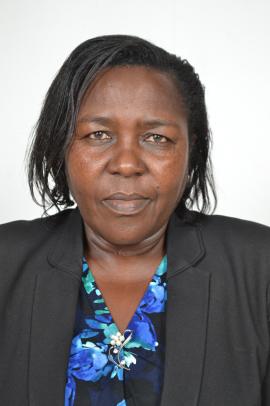Clifford Okoth is an entrepreneur with an interest in hospitality and agribusiness. He currently serves as a Program and MEAL Technical Advisor, at the Board of Uwezo Initiative Centre; a local NGO focusing on Community Health, WASH, Livelihoods and Education. Professionally he is a Program Specialist with eight years of experience in developing and managing programs in health, education, community development, cash transfers (CT), livelihoods (VSL/Social Entrepreneurship /Agribusiness/TVET), OVC, child protection, disability mainstreaming, advocacy and programming for Comprehensive ASRH, SGBV, RMNCH, WASH and HIV prevention, care and treatment. Clifford holds a Bachelor of Arts degree in International Relations and Diplomacy with IT (with a minor in; Gender issues, Sociology, Community Development, Humanitarian Standards, Human Rights, Peace and Conflict Studies, Public Administration and Political Science), a Certificate in Psychological Counselling and Diploma in Business Management (Project Management Option). He also holds a Post-Graduate Program Monitoring and Evaluation Certification from The Kenya Institute of Management and currently pursuing a Master of Arts Project Planning and Management Degree from the University of Nairobi. In his free time, Clifford likes to hike, swim and cycle with his two daughters.

INFLUENCE OF MONITORING AND EVALUATION ON IMPLEMENTATION OF COMMUNITY PEACE PROJECTS IN URBAN SLUMS OF KISUMU CITY, KENYA
A number Community Peace Projects have performed dismally in the course of their implementation attributed to lack of proper implementation of Monitoring and Evaluation. This study sought to determine the influence of Monitoring and Evaluation on Implementation of Community Peace Projects in Urban Slums of Kisumu City, Kenya. The study adopted Descriptive survey Research Design. The study had a target Population of 295 out of which a sample size of 167 respondents was chosen using Krejcie and Morgan Tables. The study established a moderate positive correlation (R = 0.493) between M&E planning and Implementation of Community Peace Projects, a weak positive correlation (R = 0.157) between M&E Training and Implementation of Community Peace Projects, a moderate positive correlation (R = 0.440) between Baseline Survey and Implementation of Community Peace Projects and a moderate positive correlation (R = 0.439) between Information Systems and Implementation of Community Peace Projects and that Information Systems accounts for 19.3% of implementation of community peace projects. Combined M&E practices account for 32.0% of implementation of community peace projects. The study concludes that the four (4) M&E activates of planning, training, baseline survey and information systems significantly contribute to the implementation of community projects. The study recommends that NGOs, government agencies, county governments and other stakeholders should develop implementation plan to systematically include M&E planning, M&E training, baseline survey and a robust information system to ensure improvement in the implementation of the peace projects





